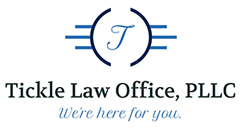In the process of determining which spouse will receive which assets when a marriage ends, divorcing spouses must also determine who will assume responsibility for which shared debts.
In addition to outlining debt responsibility in a divorce agreement, spouses may want to take other steps to avoid being held liable for their former partner’s debts down the road.
When a spouse fails to pay a debt
If the person identified as responsible for a debt, such as a credit card bill, fails to repay the debt per the divorce settlement and both spouse’s names remain on the account, the creditor may contact the other spouse in an attempt to collect on the debt. As Bankrate explains, the creditor may also provide details of any missed or late payments to credit reporting agencies that reflect on both spouse’s credit reports.
According to The Mortgage Loan, the same things may happen when one spouse does not remain current on the mortgage payment, even if the other spouse signed a quit claim deed giving full ownership of the property to the other party.
Options to protect against collection and credit problems
Nobody wants to be held accountable for a former spouse’s lack of fiscal responsibility. Some people pay off all joint debt prior to divorcing to avoid this. Other people require that any shared debt be transferred into other accounts reflecting only the responsible party’s name to ensure a clean break can be made. When a family home is involved, the person who stays in the house may need to refinance or get a new mortgage in his or her name only.

